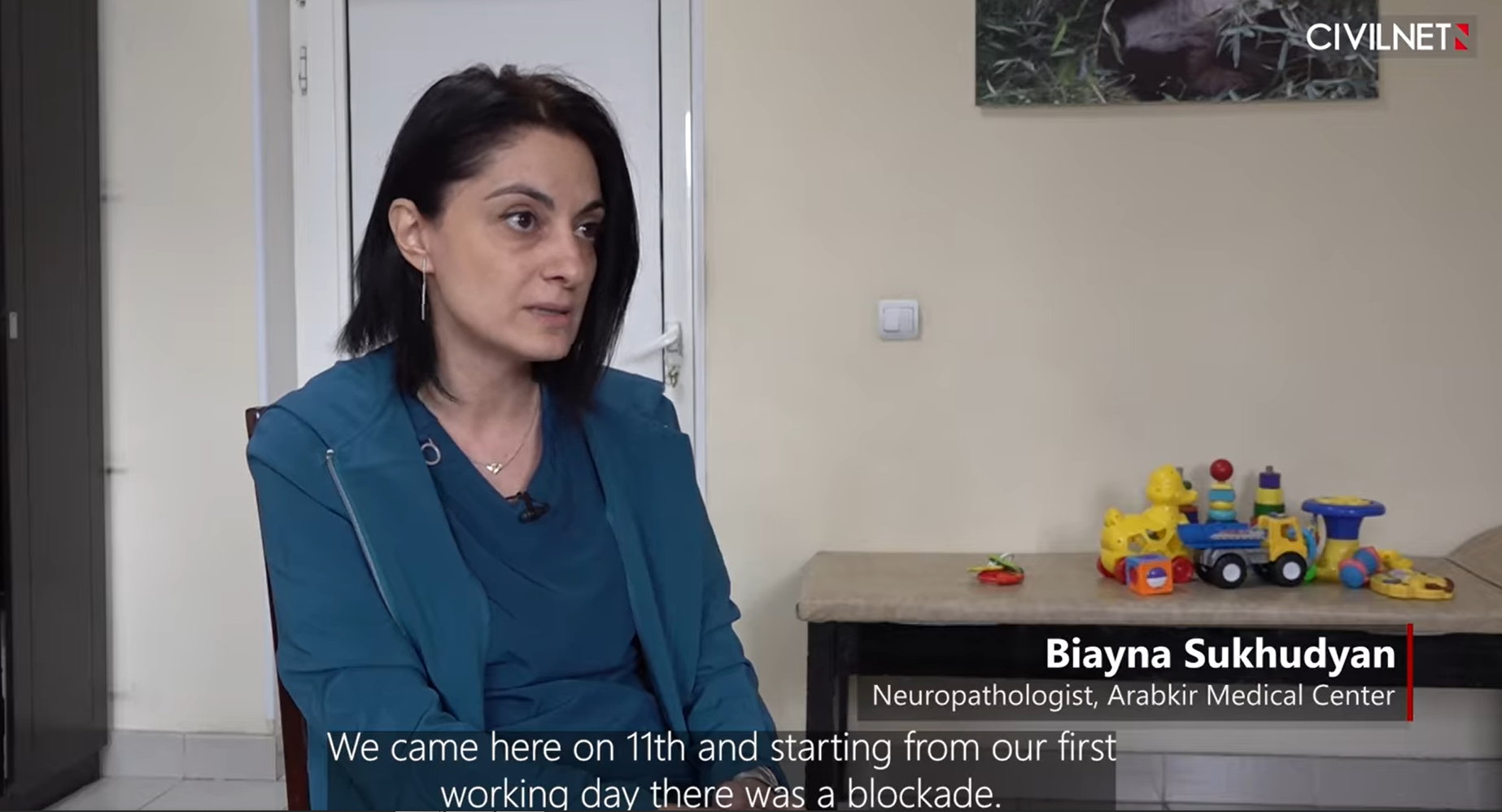
The pediatric neurology service of “Arabkir” MC, with the head of the service Biayna Sukhudyan went to “Arevik” Children’s Hospital in Stepanakert the day before the blockade of Artsakh. Our doctors were visiting Artsakh again, as part of the “Doctors for Artsakh” project by the Fund for Armenian Relief, in cooperation with “Arabkir” MC and “Arevik” Children’s Hospital.
[Biayna Sukhudyan, pediatric neurologist, Arabkir MC] We came here on the 11th and starting from our first working day there was a blockade.
[CivilNet] Biayna Sukhudyan is a neurologist, the head of the pediatric neurology and epileptology service of Arabkir MC, Yerevan. She moved to Artsakh and has since been unable to return to Armenia. Biayna and a group of enthusiastic pediatric neurologists have been visiting Artsakh for health-related consultations on a regular basis since the end of the war.
Now, as the Azerbaijani blockade of the Goris-Stepanakert highway enters the 12th day, she is trapped in Artsakh along with 120.000 other people. Her main concern is the lack of basic medication.
[Biayna Sukhudyan, pediatric neurologist, Arabkir MC] We have seen many acute and chronic conditions, when children are in need of medications which do not exist here, for example painkillers, some antibiotics and antiseizure drugs , which are very important for children with epilepsy. Sooner or later we will have a shortage of baby formula.
[CivilNet] 120.000 people, including 3000 children, remain under a blockade. Families remain separated.
[Ruben Vardanyan, State Minister of Artsakh] We should be ready for this reality and should not lie to ourselves. As the State Minister and the head of the operational headquarters we’ve discussed various solutions for this situation and before making any decision I want to discuss the opportunities and listen to your opinion.
[Biayna Sukhudyan, pediatric neurologist, Arabkir MC] We kept one infant with visceral leishmaniasis. If it was before the blockade, the child would definitely be transferred to Armenia.
[CivilNet] The shelves of grocery and drug stores are half empty. 29 patients including 8 children are under intensive care. Some of them need to be immediately transferred to Armenia to receive timely medical treatment.